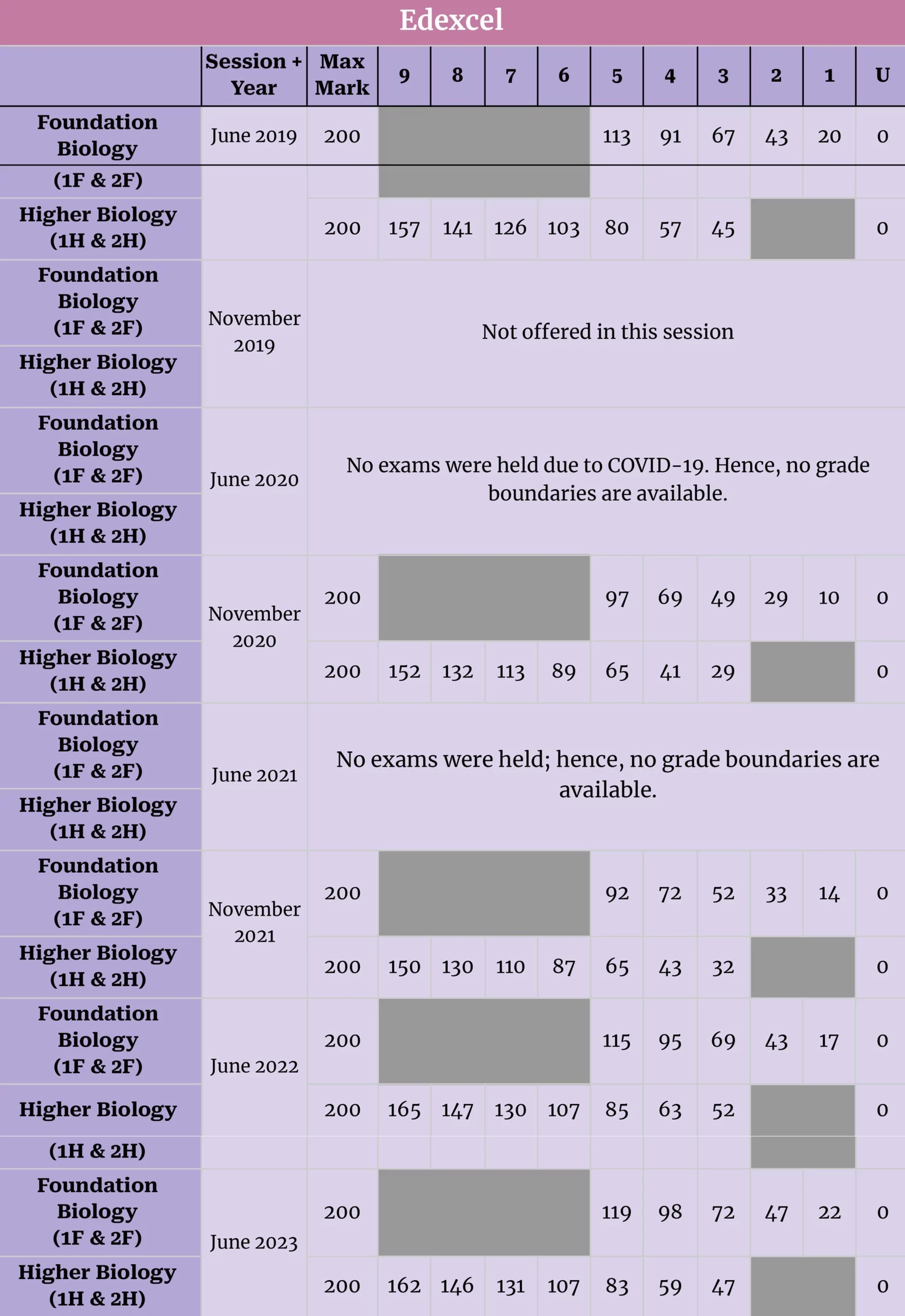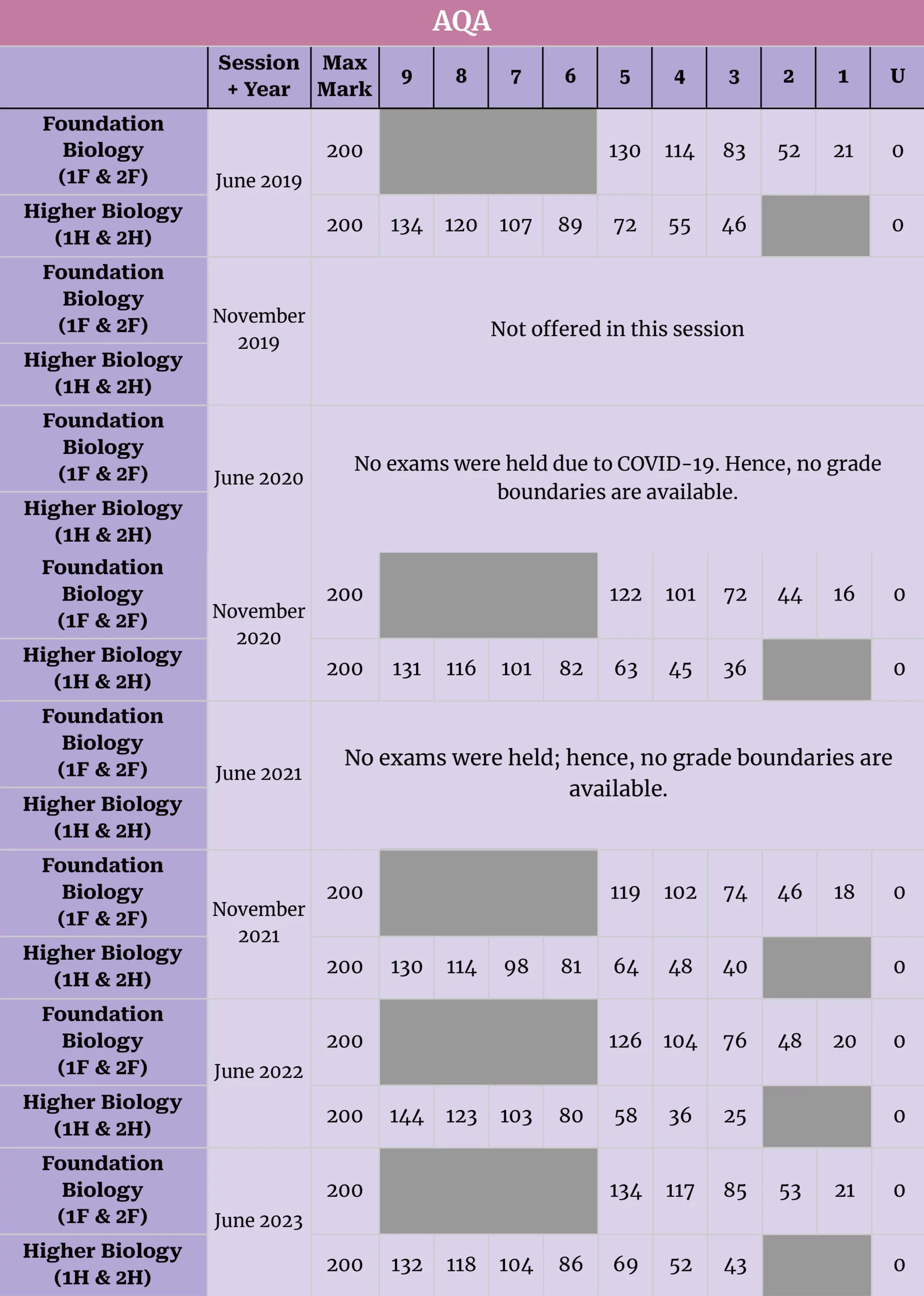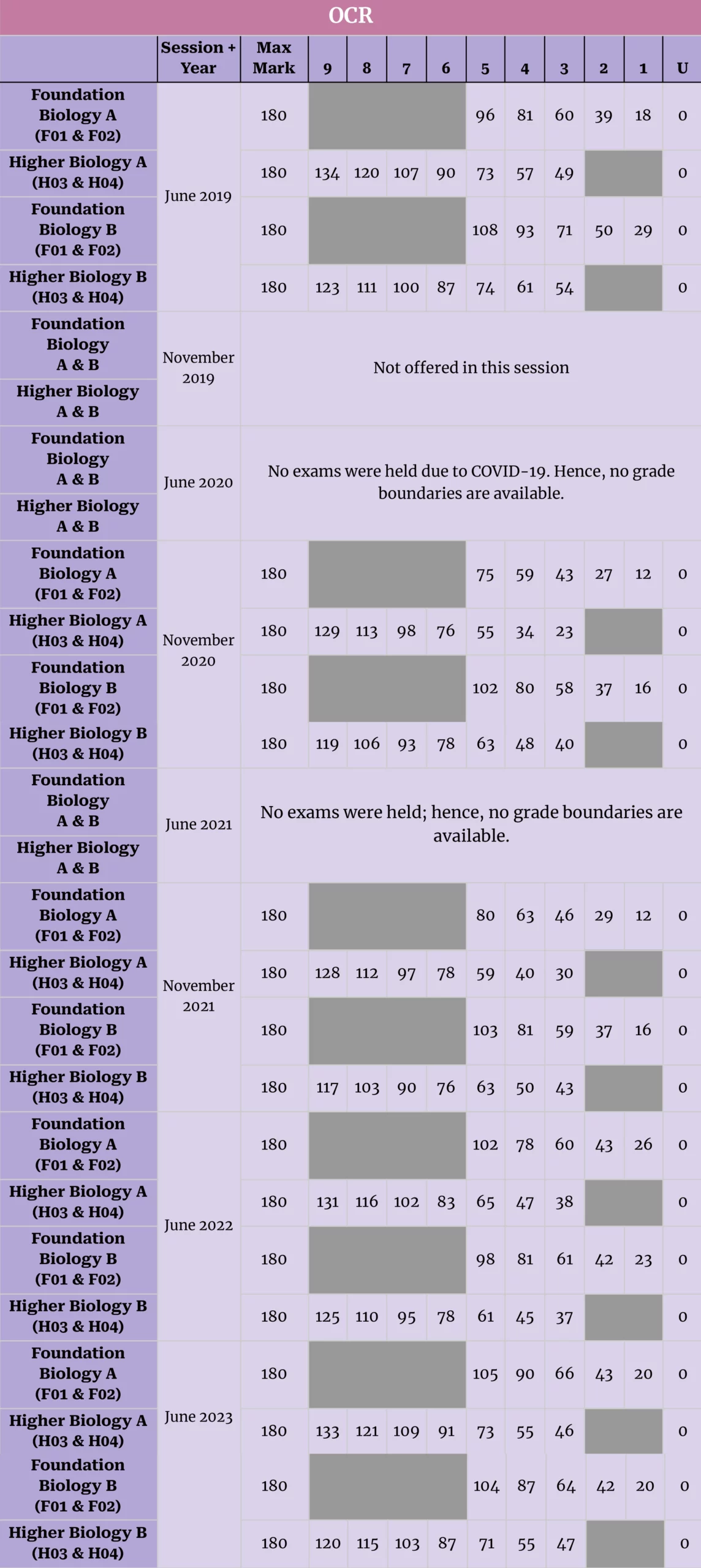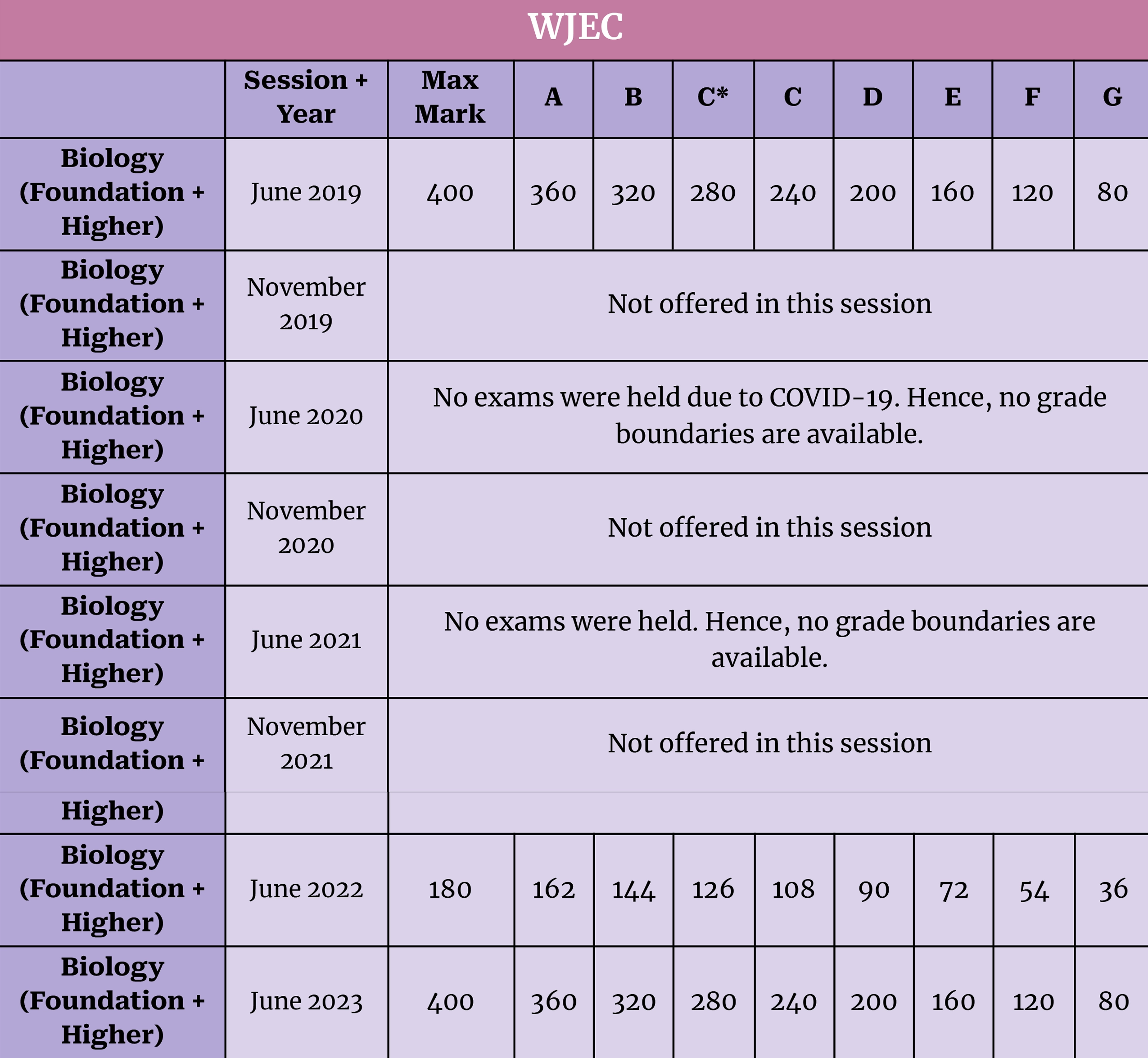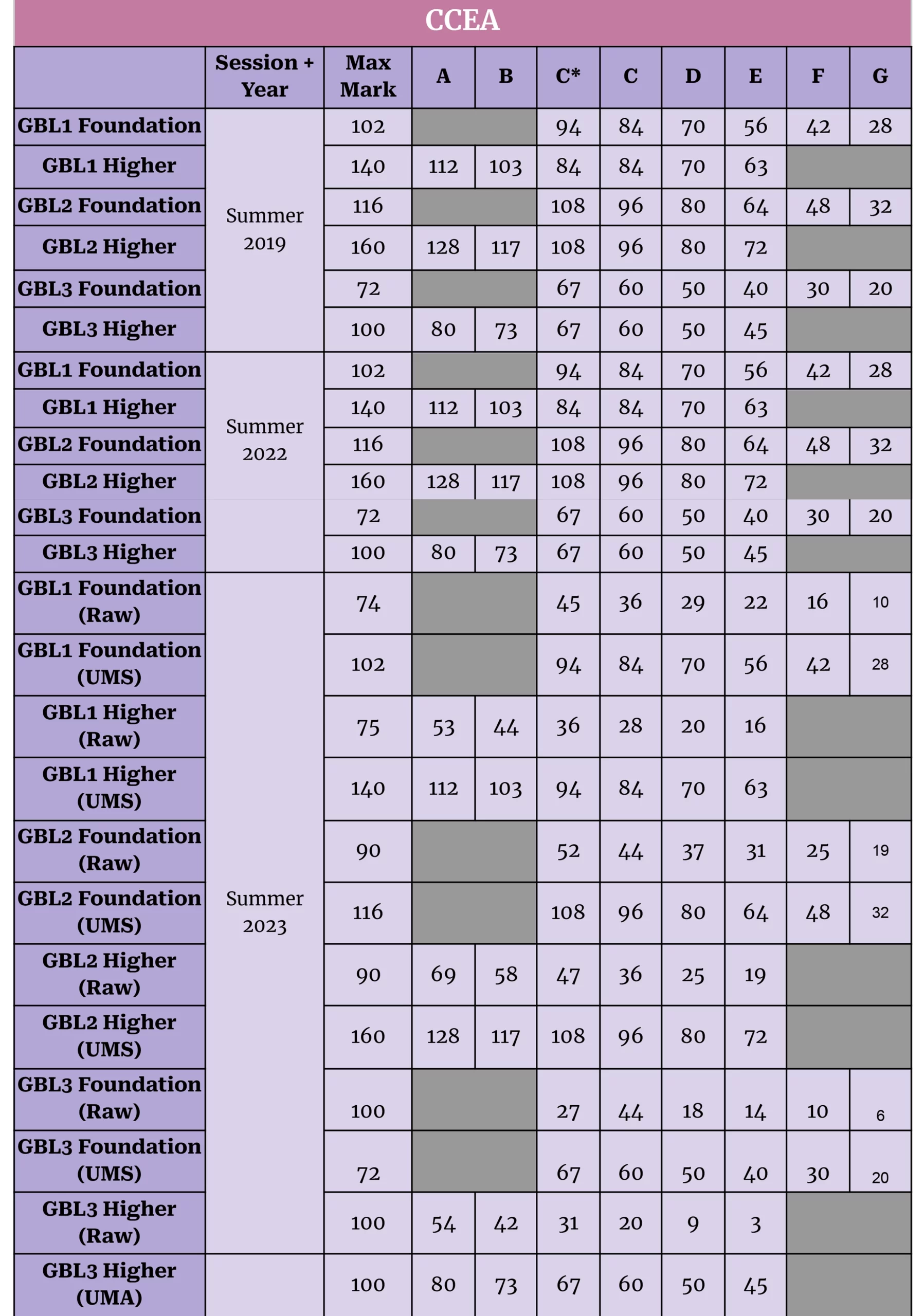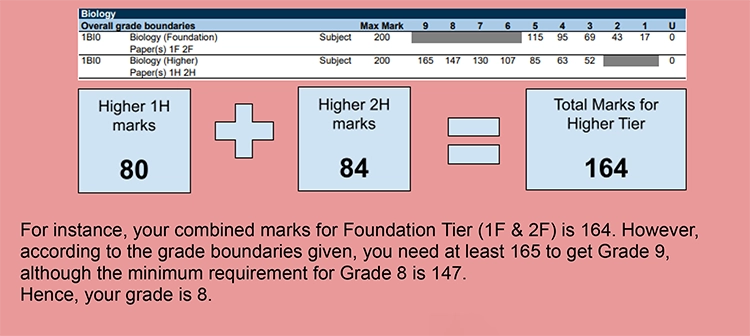GCSE
GCSE Biology Grade Boundaries – Everything Explained
Even though GCSE candidates in the UK are most stressed about their Mathematics and English grades the most, another important thing they worry about is their GCSE Biology Grade Boundaries!
Although studying how the human body works and how organisms function is fascinating, Biology can be pretty hard for certain students. Learners often get nervous during their examinations because it requires a lot of information to be remembered. Hence, they worry a lot about whether the grade boundaries will be high this time.
This blog will give you an idea about each exam board’s GCSE Biology grade boundaries and how to calculate your GCSE grade!
Table of Content
GCSE Biology Grade Boundaries Release Date
The GCSE grade boundaries are released in every session when the results are published. This is to avoid students panicking about their grades, as earlier, the grade boundaries list used to be published days before the results were out.
Similarly, GCSE Biology grade boundaries are also published on the result day, along with all other subjects. Some boards provide it in the form of a list along with other subjects. Whilst others provide a separate sheet in the form of a pdf file which is downloadable from each awarding body’s website.
Now, the question is, is GCSE Biology Tiered, or is it available as a single subject?
Types of GCSE Biology
While as interesting as Biology sounds, it is definitely a challenging subject. It is not a cup of tea for every learner to understand every bit of how the human body functions.
Hence, all of the five awarding bodies (Pearson Edexcel, AQA, OCR, WJEC, and CCEA) offer GCSE Biology in two tiers, just like GCSE Mathematics –
- Foundation Level
- Higher Level.
However, WJEC offers two kinds of Biology subjects, Biology A and Biology B, each of which has two tiers.
Similarly, CCEA offers three kinds of Biology –
- GBL1: Cells, Living Processes and Biodiversity
- GBL2: Body Systems, Genetics, Microorganisms and Health
- GBL3: Practical Skills.
Based on these different kinds, each exam board provides grade boundaries for each type and also for each tier.
GCSE Biology Grade Boundaries
GCSE Biology grade boundaries are different for each session depending on three main factors. These are –
- The difficulty level of the questions
- How well do students perform
- Previous session/year’s grade boundaries.
Hence, it is different every year, and students thus cannot rely on fixed grade boundaries.
We have tried to cover the grade boundaries of GCSE Biology offered by all five awarding bodies from the year 2019 to 2022. However, no grade boundaries are provided for June 2020 session as no examinations were held due to the pandemic.
Edexcel GCSE Biology Grade Boundaries (2019 – 2023)
The table illustrates the grade boundaries for each year and every session offered by Edexcel and the maximum marks for GCSE Biology.
AQA GCSE Biology Grade Boundaries (2019 – 2023)
The table illustrates the grade boundaries for each year, every session offered by AQA and the maximum marks for GCSE Biology (Foundation & Higher).
OCR GCSE Biology Grade Boundaries (2019 – 2023)
Unlike Edexcel and AQA, the total marks for both Foundation and Higher Tier offered by OCR are 180 each. In the table below, you can find the individual level marks for both Biology A & B.
WJEC GCSE Biology Grade Boundaries (2019 – 2023)
Initially, WJEC’s total marks for Biology, both Foundation and Higher level combined, used to be 400; however, this has been reduced to 180 recently. Moreover, WJEC does not offer Biology during their November session.
CCEA GCSE Biology Grade Boundaries (2019 – 2023)
CCEA does not offer Biology for their November Session; moreover, due to the pandemic, no examinations for GCSE Biology have been held in 2020.
Moreover, the table below shows the UMS grade boundaries, not the Raw marks. UMS remains the same for the lifetime of this specification.
Here is a downloadable link for all exam boards of GCSE Biology Grade boundaries (2019 to 2023) – GCSE Biology grade boundaries (2019 – 2022).pdf
Calculating Your GCSE Biology Grade
There are two ways of calculating your grade from your GCSE Biology grade boundaries. One shows you how to calculate the grade when each component carries the same weight.
Another technique shows you how to calculate your grade when one component weighs more than the other. You can also read GCSE (9-1) Grade Calculation for more detailed information.
- Each component carries the same weighting factor:In this case, you can simply add up the marks and compare them with the grade boundaries.
Hence, your grade is 8.
Conclusion
Even though many students get tensed before the result day for their GCSE Biology grade boundaries, they should stay calm about it and stay healthy. Rather than stressing whether the grade boundaries will be high, candidates should focus on studying harder for the examinations. It would be best if you also focused on answering as many questions as possible on the exam to help you give an upper hand and not worry about high-grade boundaries.
FAQ
Is 7 a good GCSE grade?
Ofqual tells us that compared to the old grading system, the bottom of 7 is equal to the bottom of Grade A, which means 7 is a good GCSE grade.
How many people got all 9’s in the GCSE 2022 examinations?
For June 2022 session, 6.6% of candidates in England achieved grade 9, which is the highest grade in the 9-1 grading system.
Do you need triple science to be a doctor?
Actually, you can skip Triple Science for your GCSEs to be a doctor. However, many medical schools accept Double Science if a candidate hasn’t taken individual Science subjects. Still, you are advised to check the website of your desired medical school.
How many 9s do you need for Oxford?
The University of Oxford states that many applicants with grades 7 to 9 tend to be more successful.
Is 4-4 a pass in GCSE Science?
For Pearson Edexcel, Ofqual guidelines state that usually, 4-4 is a strong pass for GCSE Combined Science but, from June 2018, Ofqual has allowed 4-3 as a pass too.
How many GCSEs do you need to be a GP?
According to National Careers Service, you need a minimum of 5 GCSEs with grades 7 to 9 and 3 A levels to be qualified to study to be a GP.
What is the average pass rate?
For the year 2022 summer session, the pass rate of GCSE learners was 73.2% in the UK, which is less than that of 2021 (77.1%).
How hard is A-level Biology compared to GCSE?
Transitioning from GCSE Biology to A-level Biology is quite challenging, so many students find A-level Biology harder.
What to Read Next:
- GCSE Exam Centres
- Functional Skills Practice Tests: Justify Your Skills Before Seating Exam
- What is Functional Skills Maths Level 2 Equivalent To? Qualification
- Does Functional Skills Count as a GCSE?
- GCSE Maths Grade Boundaries for All Boards – [2019 to 2023]
- What is Language Features Functional Skills?
- What is NVQ Level 3 Equivalent to – Qualification and Equivalent Degree



